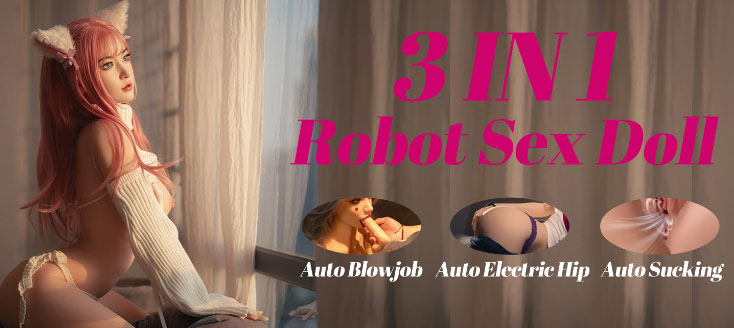What are the most common concerns related to intellectual property and the replication of celebrities as sex dolls?
The replication of celebrities as sex dolls raises several concerns related to intellectual property (IP), ethics, and personal rights. These issues are multifaceted, encompassing legal, social, and ethical considerations that affect both the manufacturers and the celebrities being replicated. Below are the most common concerns related to intellectual property and the replication of celebrities as sex dolls:
1. Right of Publicity
- Definition: The right of publicity protects individuals from unauthorized commercial use of their name, likeness, or persona. Celebrities often have this right to control how their image is used, particularly for commercial gain.
- Infringement Issues: When a sex doll is created to closely resemble a celebrity without their consent, it can lead to legal disputes over the right of publicity. Celebrities may argue that their likeness has been exploited for profit without their permission.
2. Trademark Violations
- Trademark Protections: Many celebrities have trademarked their names, logos, or distinctive branding. If a sex doll is marketed under a name or image that infringes on these trademarks, it could lead to legal action.
- Consumer Confusion: The unauthorized use of a celebrity’s likeness may create consumer confusion about the association between the celebrity and the product, which is a basis for trademark infringement claims.
3. Copyright Concerns
- Artistic Representation: If a sex doll incorporates artistic elements from a celebrity’s work (such as clothing or makeup styles associated with them), it may infringe on copyright protections. This includes designs, logos, and any other creative aspects that are legally protected.
- Originality and Derivative Works: The creation of a sex doll that is based on a celebrity may be considered a derivative work. If the original work is still under copyright, the doll manufacturer may need permission to create such a product.
4. Ethical Considerations
- Exploitation of Celebrity Status: Many users and observers express ethical concerns about the commercialization of a celebrity’s image, particularly if the celebrity has not consented to the replication. This can be viewed as exploitative, especially if the doll is designed for sexual purposes.
- Impact on Celebrity Reputation: Replicating a celebrity as a sex doll can have repercussions on their public image, potentially affecting how they are perceived by fans and the general public. This raises ethical questions about the dignity and respect owed to individuals, even in commercial contexts.
5. Consent and Personal Agency
- Lack of Consent: The creation of sex dolls based on celebrities without their explicit consent is a significant concern. Many people believe that individuals should have the right to decide how their likeness is used and whether it can be associated with sexual products.
- Potential for Misrepresentation: Users often express concerns that a sex doll may misrepresent a celebrity’s values or personal beliefs, especially if the doll is marketed in ways that do not align with the celebrity’s public persona.
6. Consumer Expectations and Misleading Claims
- False Endorsements: Users may feel misled if a sex doll appears to suggest an endorsement from a celebrity when none exists. This can affect consumer trust and raises concerns about false advertising.
- Quality and Authenticity: There is also concern over the quality of products being marketed as replicas of celebrities. If the doll does not meet consumer expectations or is poorly made, it can damage both the brand of the manufacturer and the reputation of the celebrity being replicated.
7. Regulatory and Legal Compliance
- Varying Laws: Different jurisdictions have different laws concerning the right of publicity and the use of likenesses. This inconsistency can create complications for manufacturers who operate internationally or sell products across state lines.
- Need for Clear Regulations: Many users advocate for clearer regulations regarding the replication of celebrities in commercial products, particularly in adult-oriented markets. This would help to protect both the rights of celebrities and the interests of consumers.
8. Market Impact and Trends
- Commercialization of Celebrities: The trend of replicating celebrities can lead to broader commercialization of celebrity culture, where individuals are seen primarily as marketable entities. This raises questions about the implications for celebrity culture and personal branding.
- Public Perception: Users often express concerns about how the replication of celebrities as sex dolls can alter public perception of celebrity status, potentially reducing individuals to mere products for consumption.
9. Reactions from Celebrities and Advocacy Groups
- Celebrity Responses: Some celebrities have spoken out against the unauthorized use of their likenesses, advocating for stricter laws to protect their images. This public stance can influence how consumers view the ethics of buying such products.
- Advocacy for Fair Practices: Various advocacy groups highlight the importance of respecting personal rights and advocate for fair practices in the commercialization of likenesses, pushing for legislation that would protect individual rights more robustly.
Conclusion
Overall, the replication of celebrities as sex dolls raises significant concerns about intellectual property rights, ethical considerations, and the implications of commercialization on personal identity. As technology continues to advance and the market for sex dolls expands, the conversation surrounding these issues will likely become more prominent, necessitating a balance between creative expression, commercial interests, and respect for individual rights. Users, manufacturers, and advocacy groups will need to engage in ongoing dialogue to navigate these complex challenges in a way that respects the dignity of all parties involved.

